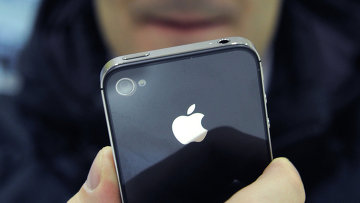by Kristen Blyth
Russia’s notorious corruption and bribery have long been accepted simply as a fact of life here, even as businesses and individuals complain about having to pay a little extra on the side for official services.
General awareness of the problem is evident: Transparency International’s 2011 Corruption Perceptions Index ranked Russia 143rd out of 183 nations surveyed.

corruption and bribery
Increasing frustration with corruption, however, has inspired a group of young entrepreneurs to develop Bribr, an iPhone application released in September. The app allows users to anonymously report bribes across Russia, and compiles the collected data to create a virtual map of the results.
“The attitude that bribery is bad, but it’s really OK just because everybody does it, is unacceptable,” Yevgenia Kuida, the app’s founder and a London Business School graduate, told The Moscow News. “Bribery should be something you should be ashamed of.”
To report a bribe, the user enters information about the location and the amount of the transaction, to whom the money was given, and why. The process is completely anonymous: users report no names, only the recipients’ position and institution, and no information about the users is saved, according to Bribr’s website.
Steady growth
The application has become increasingly popular. It’s won endorsements from opposition activist Alexei Navalny, who dubbed it “cool” over Twitter, as well as from TV host and activist Ksenia Sobchak. About 1,000 bribes, totaling nearly 3 million rubles, have been reported so far, according to Bribr’s website on Monday. Bribes to academic institutions for receiving diplomas and changing exam grades top the list at 26.1 percent of the total, followed by 17.9 percent to kindergartens for admission of children.
Bribr was downloaded over 20,000 times in the first two weeks, Kuida said, and the production team has big plans for expansion – including development for use on Android and Nokia smartphones, and the ability to report bribes directly on the website.
“We’re also making a sticker that says, ‘We don’t accept bribes,’ which companies can put in their offices,” she said. “Long-term, we want to create some kind of a movement.”
To physically convey an attitude of disapproval toward bribery, the team has designed a “zero ruble” banknote that people can put in their wallets and hand over when faced with a situation that requires a bribe. The Bribr team is in the process of printing the notes, Kuida said, but she didn’t give details about how they will be released.
“I can’t tell you now, but distribution will be huge,” she said.
Technology: advantage or limitation?
Bribr is the latest program to make use of crowdmapping, a social networking tool that plots verified user-generated content on a map. The exact location and category of each incident is then visible on a national or regional scale, allowing users to quickly process information and identify trends.
The technique has been used to create programs such as HarassMap, a project that logs incidents of sexual harassment in Egypt; Syria Tracker, which documents killings in Syria since March 2011; and I Paid A Bribe, a series of websites that report bribery in India and other countries.
The fact that Bribr operates over very modern technology, however, may limit its usefulness, said Yelena Panfilova, director of the Russian branch of Transparency International.
“This app caters only to a small percentage of Russians – middle-class, mostly young people who have smart phones,” Panfilova told The Moscow News. “Unless [the team] can somehow distribute smart phones to people in the Ural Mountains and Siberia, Bribr will have no real widespread effect on corruption or bribery.”
An economic problem
General disapproval of problems like bribery may be on the rise, as evidenced by the forced resignation of Federal Agency for Youth Affairs press secretary Anna Biryukova last week. Biryukova had tweeted about paying a bribe to a traffic policeman; she later told RIA Novosti that she had been joking.
Ultimately, however, bribery is a problem of collective bargaining, said Roman Morkovin, a student at the Higher School of Economics.
“In economics, the concept of ‘the free rider problem’ refers to a situation where a person pays nothing into a system but still receives its benefits,” he told The Moscow News. “Bribery is like the reverse: the person who doesn’t pay a bribe is at a disadvantage to those who do. It should be illegal – people should be scared to give and take bribes. They should go to prison for it. But unless the laws change, the problem won’t change.”
Bribery is technically illegal in Russia, punishable by fines, imprisonment or corrective labor under Article 291 of the Criminal Code.
This article was written by Kristen Blyth and originally published on themoscownews






